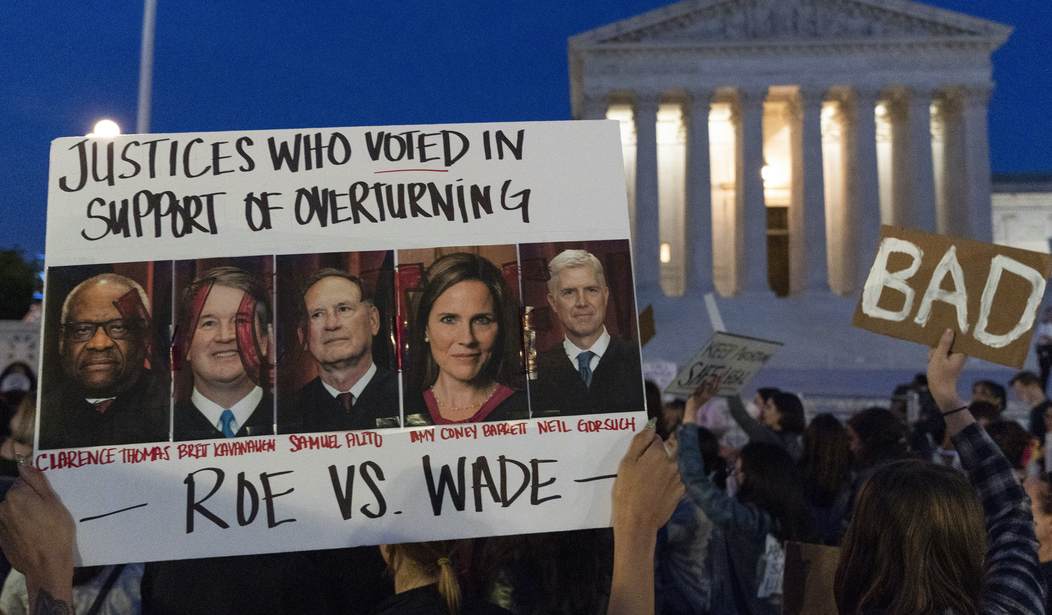As the days go by since the leak of the draft Supreme Court ruling that might overturn Roe v Wade, we’re seeing a variety of responses in both the private and public sectors. Most revolve around one of several declarations that the world is about to end in some sort of cataclysm. This doomsaying is coming from private activist groups promising a “summer of rage” and elected officials who are closing in on branding some of the Supreme Court justices as “dangerous” rogue agents of destruction. But a truly interesting interpretation popped up today in an editorial board piece from the St. Louis Post-Dispatch. Rather than attacking the Supreme Court as an institution, they fret over the possibility that the court may be close to losing its relevance and authority, perhaps disappearing as a legitimate third branch of the federal government. And how might this happen? Through decisions by various states to simply ignore their rulings, rendering them irrelevant. And, of course, they’re talking about state laws restricting abortions.
The breakdown of U.S. Supreme Court legitimacy may already have begun as the public perception of the court morphs from one of respectful observances of the law as interpreted by the nation’s top judicial scholars to a view of them as little more than political hacks in black robes. Various states, including Missouri, are on record openly defying Congress by effectively ignoring federal legislative mandates. It could be just a matter of time before defiance of the Supreme Court follows the same track…
This is how quickly federal authority can erode when states decide to go their own way. The U.S. Supreme Court and Congress might be only a few steps away from prompting similar defiance by states that refuse to recognize federal supremacy regarding abortion rights.
After a draft Supreme Court ruling leaked that could overturn abortion rights, Senate Republican leader Mitch McConnell stated that a Republican-controlled Congress might move to establish a federal ban on abortion. California is already working on a law that would protect anyone involved in an abortion from being extradited if charged in another state for an abortion offense.
The editorial seeks to offer examples of where our system of legal conduct is already breaking down. They cite states that have legalized marijuana to various degrees even though it remains a Schedule I drug equivalent to heroin at the federal level. This is true and I’ve written about it here at length. The disconnect between state and federal marijuana laws does indeed cause great amounts of chaos and legal jeopardy. But it’s worth pointing out that the Supremes did not make pot a Schedule I drug. Congress did. And the court didn’t legalize weed at the state level. They simply refused to hear some challenges by the states. (Although that may be changing.)
Similarly, the editorial board points to states like Missouri that have forbidden police from enforcing some federal gun control laws. That’s another contradictory area to be sure. But whether the court upholds or strikes down any gun control laws, it’s not their job to enforce those decisions. If enforcement isn’t taking place, that’s not a sign that the court is irrelevant, but rather an indication that the executive branch is failing to enforce the law.
When it comes to Roe v Wade, this story isn’t any different in this current debate. It’s true that the court effectively legalized abortion across the land with that decision, and they did seem to be creating new constitutional text out of thin air. But if they overturn Roe, they will not be criminalizing abortion. Nor will they be mandating it be legal. They will be allowing the states to decide for themselves. If a state chooses to restrict abortions through legislative action, it will not be “defying the Supreme Court” or undermining its authority. They will actually be following the court’s ruling by making their own choice. The same goes for states that elect to keep the procedure legal or even further safeguard it. If anything, the Supreme Court’s relevance and authority would be exemplified by such scenarios.
With all of that said, concerns about the final authority of the Supreme Court have been expressed at various times dating back to the founding fathers. Of the three branches of the federal government, the judicial branch has the least actual “muscle” in the physical world. The legislative branch can pass laws and reasonably expect that law enforcement will crack down on those who refuse to obey (in most cases, anyway). And the executive branch controls the military at the federal level and the police at the state and municipal levels. But what if the Supreme court issues rulings that others simply ignore? If they can find no one to enforce those rulings, they are shown to be a paper tiger.
But that doesn’t seem to be happening here. Or at least not yet. There are certainly issues where more cooperation between the three branches would benefit everyone, as well as more cohesiveness between state and federal laws. But I don’t think democracy is teetering on the edge of a cliff just yet.








Join the conversation as a VIP Member